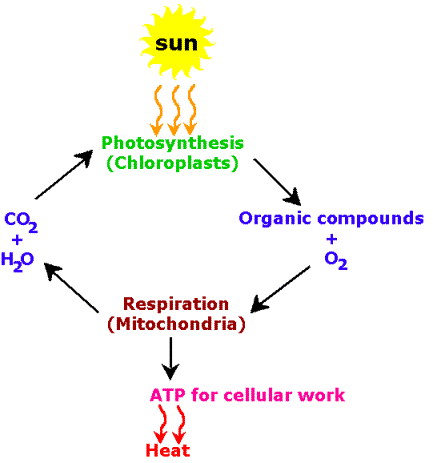Biochemical Pathways Used for Obtaining Energy
 Oxidation
OxidationOxygen is taken up by an organism and used to oxidize various organic molecules to release energy. Aerobic Respiration takes place in many living things. It is easy to get rid of the CO2 and H2O, and maximum energy is released from organic substances such as glucose. A general example for aerobic respiration would be:
6H2O + 6CO2 + energy!
Fermentation
If there is no oxygen, then an organism must find a new electron acceptor. This
can occur through Fermentation. A common form of fermentation is
converting sugar to ethanol or acid. This reaction, however, is not as
efficient as oxidation. Only a fraction of the organic carbon is oxidized to CO2
(the rest remains in the alcohol/acid by-product):
2) What are some examples of fermentation that result in alcohol (ethanol) or acid (acetic or lactic acid)?

Heterotrophs
(different-feeding) are organisms that obtain their
carbon from previously produced organic molecules. All animals, fungi, and many
bacteria are heterotrophs.

3) Where does this organic carbon ultimately come from?
Autotrophs
(self-feeding) obtain their carbon from inorganic CO2.